2017 International Monetary Forum·Theme 4: Cross-Border Capital Flow and Systemic Risk Prevention
2017-07-16 IMI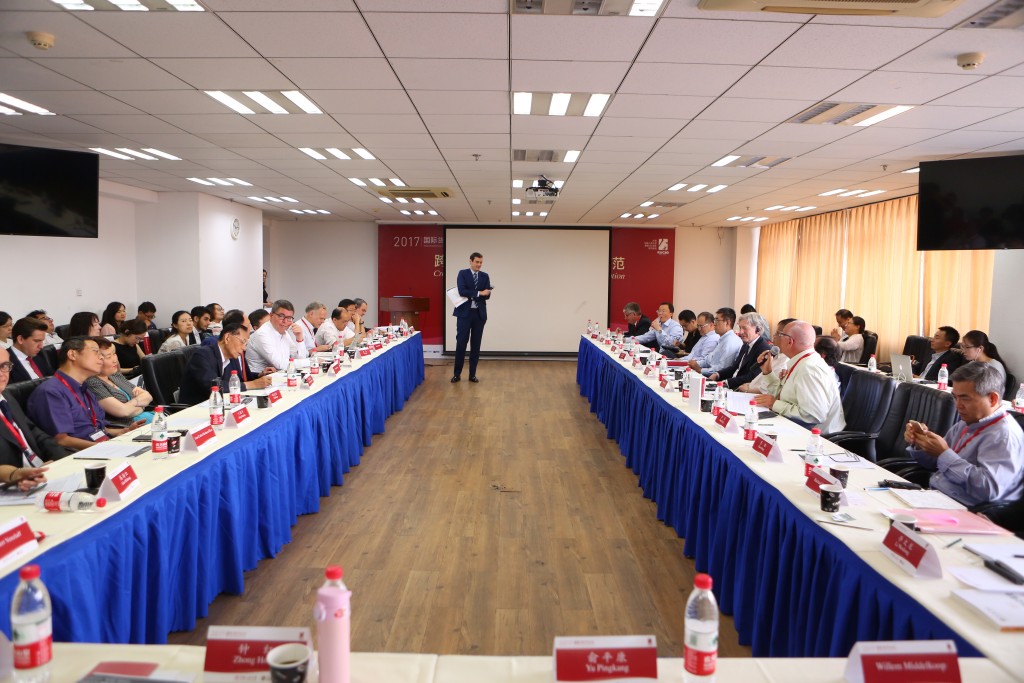 The following guests attended the forum and delivered key speeches: Guan Tao, Senior Research Fellow of China Financial 40 Forum and Former Director General of International Payments of SAFE; Bruno Bezard, Managing Partner of Cathay Capital Private Equity and Former Vice Minister of Finance of France; Gao Haihong, Director of International Finance Research Center of CASS; Shen Jianguang, General Manager and Chief Economist of Mizuho Securities Asia; Sun Lujun, Director of CNIC Corporation Limited; Zhang Bin, Senior Research Fellow of China Financial 40 Forum and Research Fellow of Institute of World Economics and Politics of CASS; Zhang Ming, Director of International Investment of Institute of World Economics and Politics of CASS and Chief Economist of Ping An Securities; Lord Neil Davidson, Shadow Treasury Minister for the Labour Party of the UK and Former Advocate General of the UK; E Zhihuan, Chief Economist of Bank of China Hong Kong; Li Wenlong, Senior Economist of ASEAN+3 Macroeconomic Research Office (AMRO); Iikka Korhonen, Head of Bank of Finland Institute for Economies in Transition (BOFIT); and Zhou Yinggang, Associate Dean of Wang Yanan Institute for Studies in Economics and Professor of School of Economics of Xiamen University. This forum was chaired by Adam Cotter, Head of Asia and Chief Representative in OMFIF Singapore.
The following guests attended the forum and delivered key speeches: Guan Tao, Senior Research Fellow of China Financial 40 Forum and Former Director General of International Payments of SAFE; Bruno Bezard, Managing Partner of Cathay Capital Private Equity and Former Vice Minister of Finance of France; Gao Haihong, Director of International Finance Research Center of CASS; Shen Jianguang, General Manager and Chief Economist of Mizuho Securities Asia; Sun Lujun, Director of CNIC Corporation Limited; Zhang Bin, Senior Research Fellow of China Financial 40 Forum and Research Fellow of Institute of World Economics and Politics of CASS; Zhang Ming, Director of International Investment of Institute of World Economics and Politics of CASS and Chief Economist of Ping An Securities; Lord Neil Davidson, Shadow Treasury Minister for the Labour Party of the UK and Former Advocate General of the UK; E Zhihuan, Chief Economist of Bank of China Hong Kong; Li Wenlong, Senior Economist of ASEAN+3 Macroeconomic Research Office (AMRO); Iikka Korhonen, Head of Bank of Finland Institute for Economies in Transition (BOFIT); and Zhou Yinggang, Associate Dean of Wang Yanan Institute for Studies in Economics and Professor of School of Economics of Xiamen University. This forum was chaired by Adam Cotter, Head of Asia and Chief Representative in OMFIF Singapore.
 The theme of Roundtable I is “The Evolution, Status Quo, and Future of China’s Cross-border Capital Flows” and all key speakers shared their respective views on this theme.
The theme of Roundtable I is “The Evolution, Status Quo, and Future of China’s Cross-border Capital Flows” and all key speakers shared their respective views on this theme.
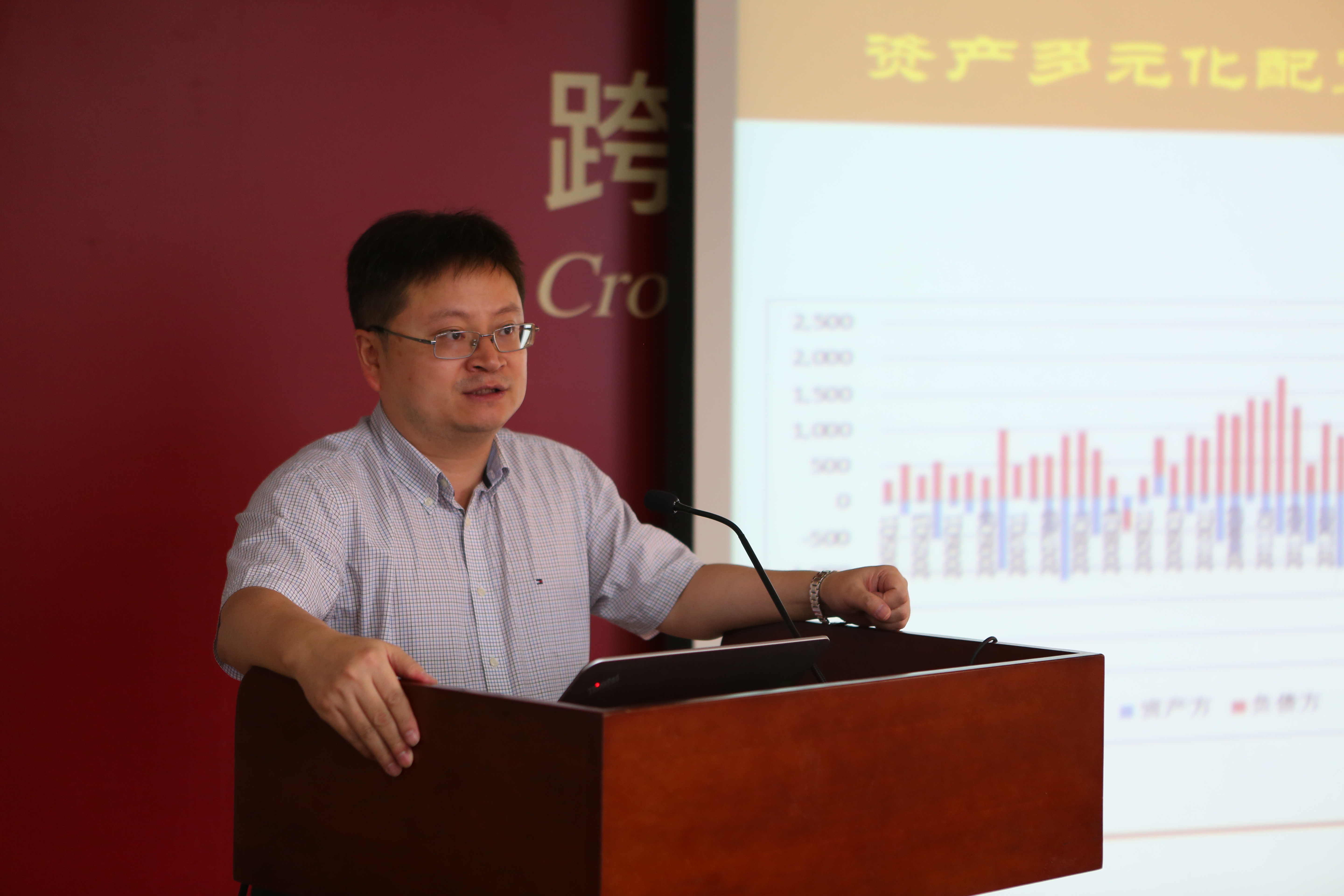 Guan Tao delivered a speech from the perspective of China’s cross-border capital flows, analyzed the changes in China’s recent capital flows, and pointed out that as the domestic economy grows steadily and the financial risk is gradually released, cross border capital flows will gradually return to domestic fundamentals. Currently, cross border capital flows management produces positive fruits and the impact of the capital outflow risk has been relieved, but the financial opening up remains unchanged when its intension and pace are changed. If cross border capital orderly flows, then the government and the market can finally reach win-win results. In the future, liberalizing the exchange rate is the general trend and the trade surplus and the capital outflow will become the new normal of China’s international balance. Some cross border capital flows management is temporary, and market entities should seize the opportunity, constantly improve its ability to adapt to the fluctuating exchange rate, properly raise the awareness of financial risk, and not replace market operation with market judgment.
Guan Tao delivered a speech from the perspective of China’s cross-border capital flows, analyzed the changes in China’s recent capital flows, and pointed out that as the domestic economy grows steadily and the financial risk is gradually released, cross border capital flows will gradually return to domestic fundamentals. Currently, cross border capital flows management produces positive fruits and the impact of the capital outflow risk has been relieved, but the financial opening up remains unchanged when its intension and pace are changed. If cross border capital orderly flows, then the government and the market can finally reach win-win results. In the future, liberalizing the exchange rate is the general trend and the trade surplus and the capital outflow will become the new normal of China’s international balance. Some cross border capital flows management is temporary, and market entities should seize the opportunity, constantly improve its ability to adapt to the fluctuating exchange rate, properly raise the awareness of financial risk, and not replace market operation with market judgment.
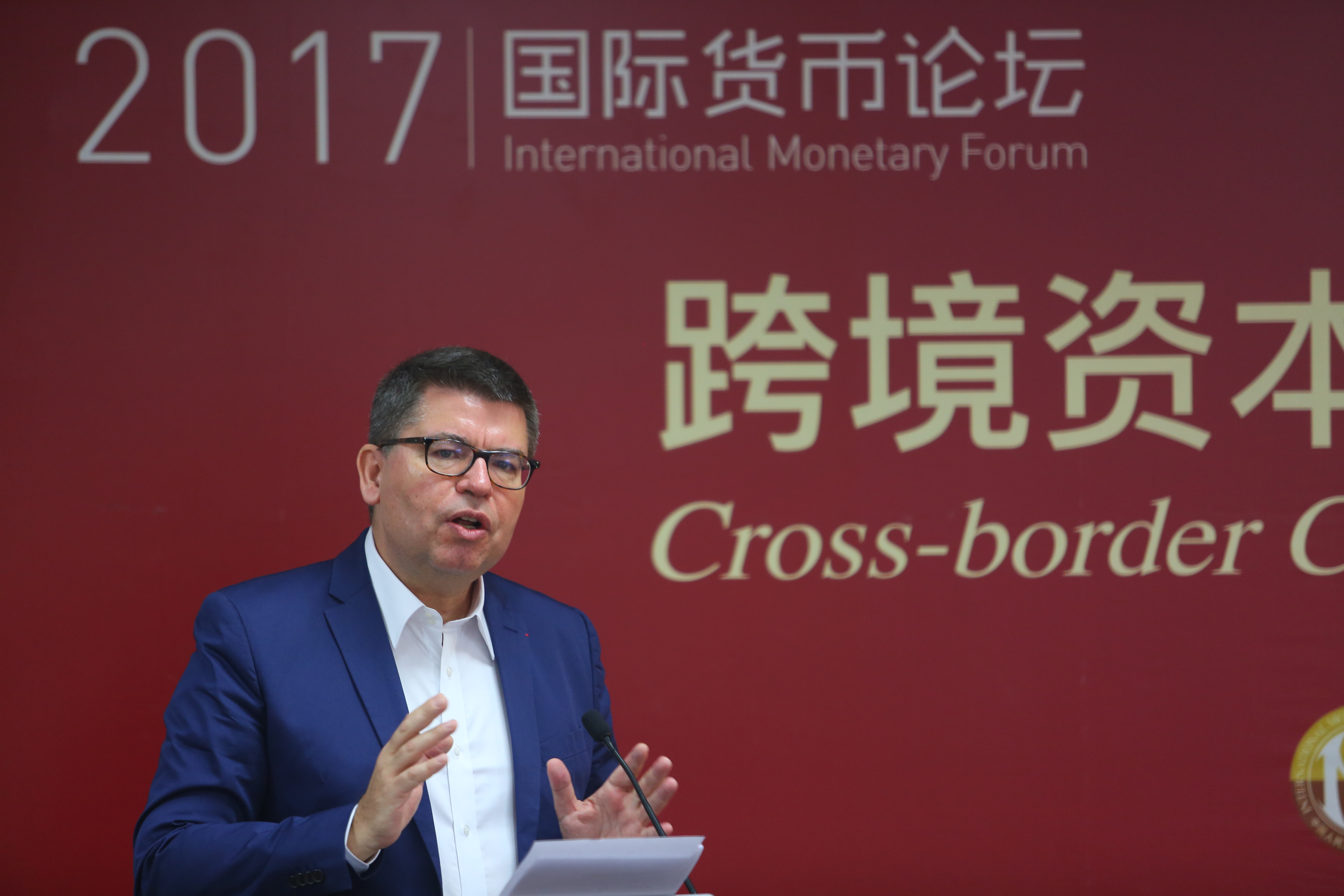 Bruno Bezard talked that at the current stage, China is quickly integrating with the global economy. China has become an important development engine of the global economy, so the RMB’s status will definitely improve as China gradually participates more in the global economy. As the RMB constantly deepensits internalization, China will play a more and more important role in the global public fundraising and finance. As for how to enable the RMB to avoid systemic risk, he thought that China needs to have a sound economic fundamental and a powerful financial system that can withstand any impact. The supervisory department should work hard to conduct supervision at both the micro and macro levels.
Bruno Bezard talked that at the current stage, China is quickly integrating with the global economy. China has become an important development engine of the global economy, so the RMB’s status will definitely improve as China gradually participates more in the global economy. As the RMB constantly deepensits internalization, China will play a more and more important role in the global public fundraising and finance. As for how to enable the RMB to avoid systemic risk, he thought that China needs to have a sound economic fundamental and a powerful financial system that can withstand any impact. The supervisory department should work hard to conduct supervision at both the micro and macro levels.
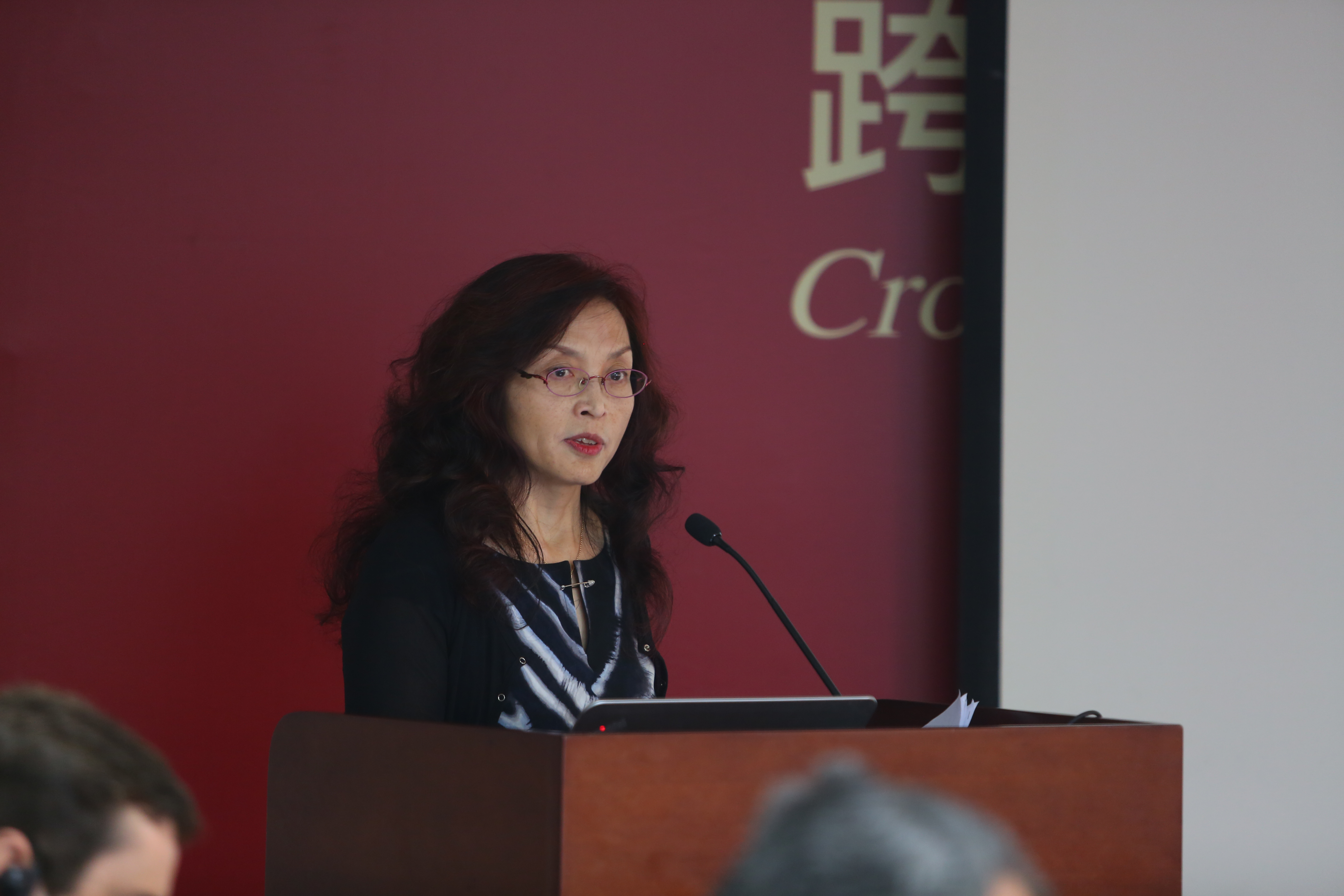 Gao Haihong mainly analyzed the Chinese policy predicament between exchange rate capital flows and the financial stability. She started from the 1997 Asian financial crisis and pointed out that it is improper for a country to conduct the policy package of opening up the capital account too early and fixing the exchange rate, which will easily trigger constant high prices of domestic assets and high inflation and the fixed exchange rate system will make the exchange rate unable to reduce external impacts. She thought that China could avoid the crisis at that time primarily because China’s capital account was closed. However, as China participates more in the global economy, China’s exchange rate policy will definitely have a great influence on China’s economy and trigger external concerns. She held that there is no single exchange rate system that can fit all countries. China needs to choose an exchange rate system that suits its current situations.
Gao Haihong mainly analyzed the Chinese policy predicament between exchange rate capital flows and the financial stability. She started from the 1997 Asian financial crisis and pointed out that it is improper for a country to conduct the policy package of opening up the capital account too early and fixing the exchange rate, which will easily trigger constant high prices of domestic assets and high inflation and the fixed exchange rate system will make the exchange rate unable to reduce external impacts. She thought that China could avoid the crisis at that time primarily because China’s capital account was closed. However, as China participates more in the global economy, China’s exchange rate policy will definitely have a great influence on China’s economy and trigger external concerns. She held that there is no single exchange rate system that can fit all countries. China needs to choose an exchange rate system that suits its current situations.
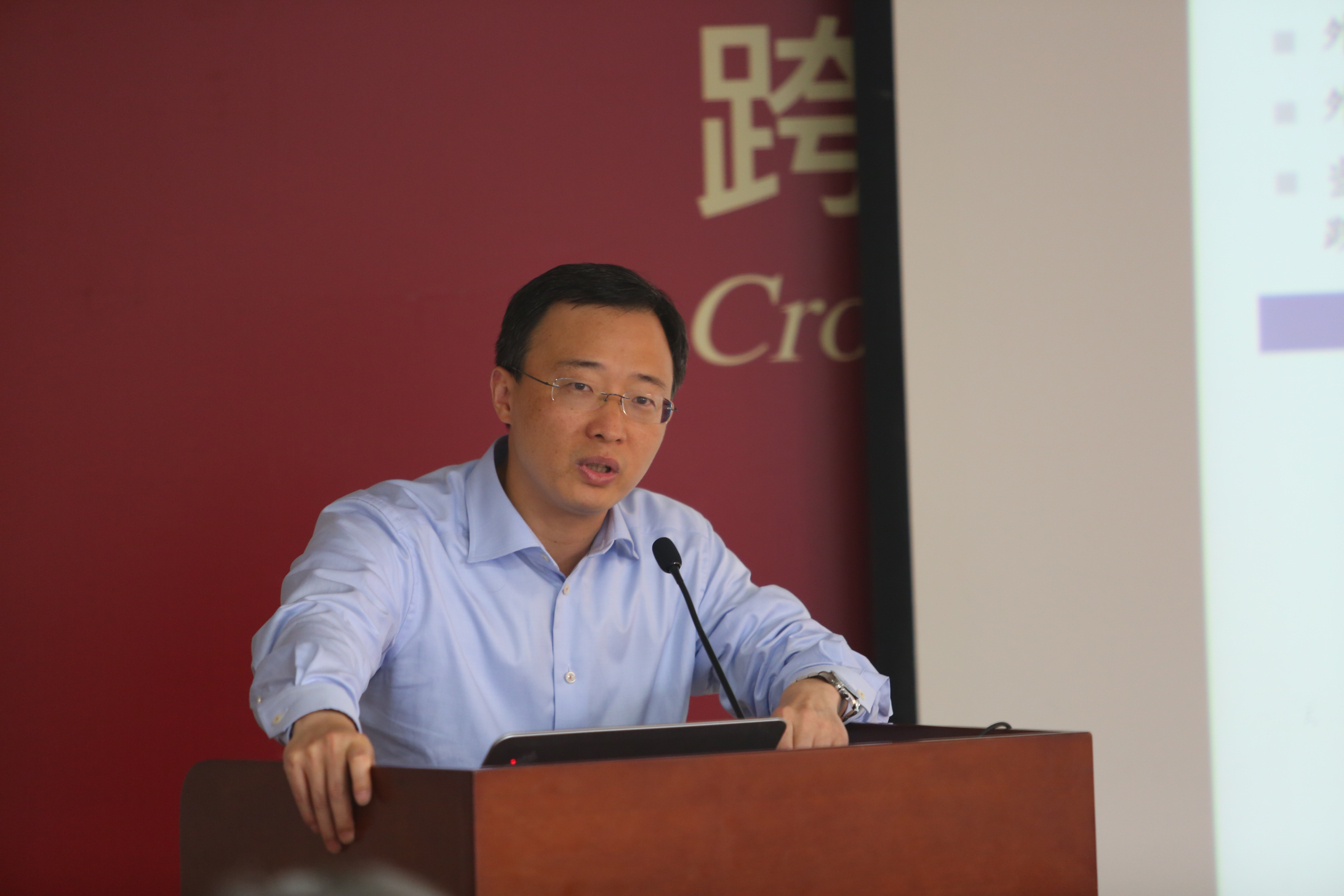 Shen Jianguang thought that the question of “protecting the exchange rate or the foreign currency reserve” has been falsified. The decreasing foreign currency reserve is more related to the panic capital outflow. Currency depreciation and foreign currency reserve decrease do not have a cause-and-effect relationship. As the RMB exchange rate grows steadily, China has gradually relieved the pressure from the large-scale capital outflow. In this context, our market-based reform will make further progress.
Shen Jianguang thought that the question of “protecting the exchange rate or the foreign currency reserve” has been falsified. The decreasing foreign currency reserve is more related to the panic capital outflow. Currency depreciation and foreign currency reserve decrease do not have a cause-and-effect relationship. As the RMB exchange rate grows steadily, China has gradually relieved the pressure from the large-scale capital outflow. In this context, our market-based reform will make further progress.
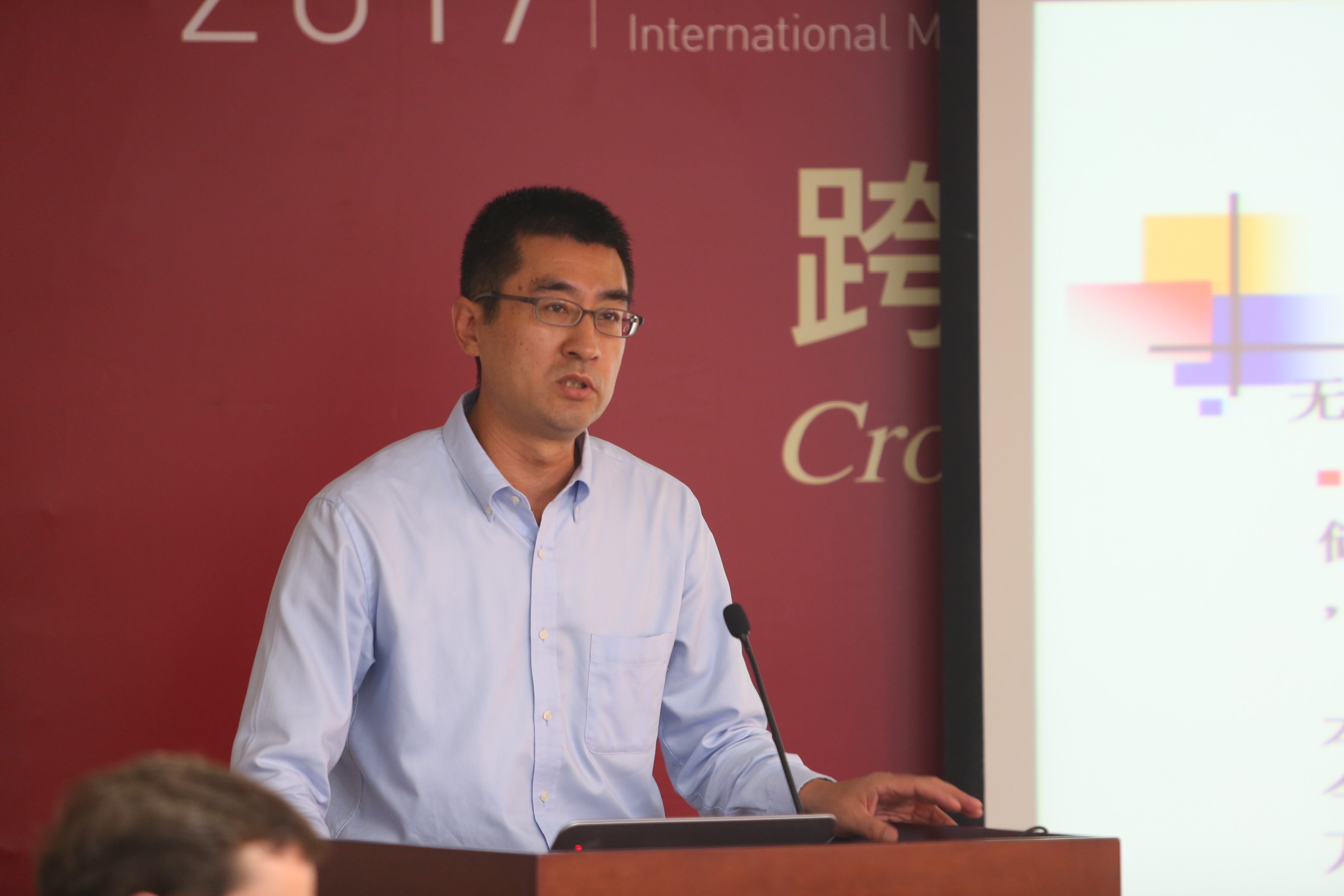 Sun Lujun mainly answered the question of sustainable capital outflow and management. He pointed out that this year, the pressure of capital outflow is greatly relieved, but under the influence of the US dollar appreciation, interest rate increase by the US Federal Reserve, and the expected slowdown of the GDP growth, the pressure of domestic capital outflow will still exist. He thought that the current capital management is reasonable to some extent, but China should enhance the transparency and the rule consistency of capital management and based on the domestic economic and market entities’ operation and the reality of the international balance, China should gradually relieve or eliminate relevant capital management and steadily promote the capital account convertibility.
Sun Lujun mainly answered the question of sustainable capital outflow and management. He pointed out that this year, the pressure of capital outflow is greatly relieved, but under the influence of the US dollar appreciation, interest rate increase by the US Federal Reserve, and the expected slowdown of the GDP growth, the pressure of domestic capital outflow will still exist. He thought that the current capital management is reasonable to some extent, but China should enhance the transparency and the rule consistency of capital management and based on the domestic economic and market entities’ operation and the reality of the international balance, China should gradually relieve or eliminate relevant capital management and steadily promote the capital account convertibility.
 Zhang Bin held that there are three reasons for China’s previous capital outflows: first, the domestic economic fundamentals and the easy monetary policies enabled more enterprises to invest overseas; second, from 2011 to 2012, China’s large foreign debt caused enterprises to pay back when the RMB appreciated and accelerated the capital outflow; and third, China’s exchange rate formation mechanism enhanced the pressure of capital outflow. Currently, the capital outflow slows down because the above-mentioned three factors begin to reverse. Zhang Bin was not optimistic about the future capital account management. He thought that our exchange rate is still not open and does not have the tendency to open in the future, so China will make limited progress in opening the capital account in the future.
Zhang Bin held that there are three reasons for China’s previous capital outflows: first, the domestic economic fundamentals and the easy monetary policies enabled more enterprises to invest overseas; second, from 2011 to 2012, China’s large foreign debt caused enterprises to pay back when the RMB appreciated and accelerated the capital outflow; and third, China’s exchange rate formation mechanism enhanced the pressure of capital outflow. Currently, the capital outflow slows down because the above-mentioned three factors begin to reverse. Zhang Bin was not optimistic about the future capital account management. He thought that our exchange rate is still not open and does not have the tendency to open in the future, so China will make limited progress in opening the capital account in the future.
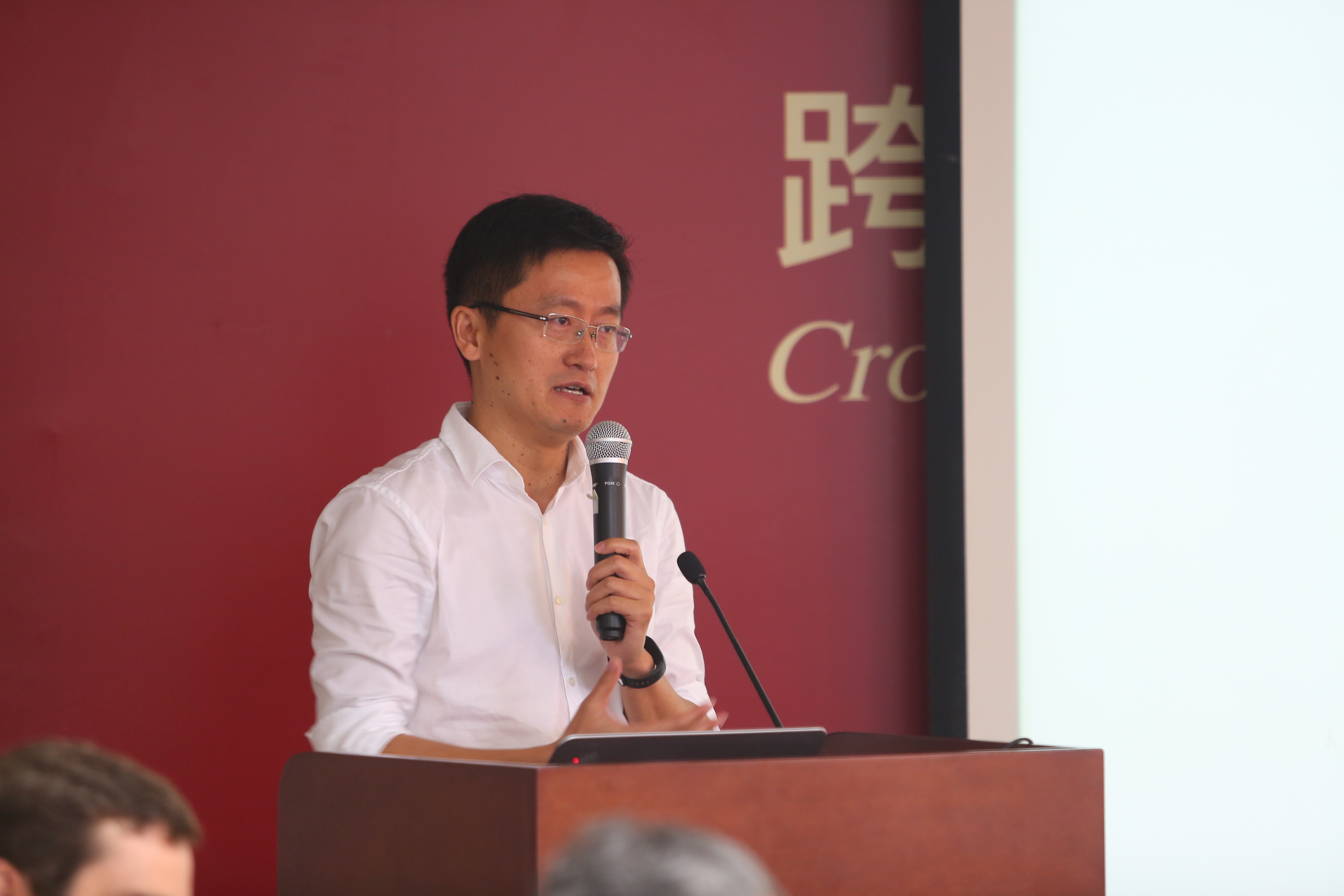 Zhang Ming mentioned in his speech that from 2012 to 2013, the Chinese Academy of Social Sciences believed that accelerating the opening of China’s capital account has three risks: first, the global finance may worsen and China’s constant capital inflow may turn to outflow; second, the rigid exchange rate may turn the expected RMB appreciation into depreciation at any time; and third, before China’s financial risk is completely resolved, opening the capital account may trigger great capital outflow. These concerns have been proved to be true, so the RMB internationalization greatly slows down. As for the reasons for the relieved capital outflow this year, Zhang Ming thought that first, the expected change in the exchange rate of the RMB against the US Dollar is greatly weakened; second, China’s central bank’s capital management is greatly enhanced; third, since the second half of last year, China’s macro economy growth rate has gradually increased; and fourth, since the end of last year, the central bank and the three commissions’ supervision has caused the domestic short end currency market to expand greatly, which triggers greater China-US deficits. Whether this relieved trend can sustain or not mainly depends on the comparison between the US and Chinese economic growth rates and the Chinese government’s attitude towards supervision.
During the discussion, the following guests shared their respective opinions: Herbert Poenisch, Former Senior Economist of BIS; Patrick D’Arcy, Representative at the China Office of Reserve Bank of Australia; Chiu Cheng-Hsiung, Board Director, SinoPac Financial Holdings; Juan Carlos Martinez Oliva, Senior Director, Directorate General for Economics, Statistics, and Research, Bank of Italy; and Ding Jianping, Deputy Director of Shanghai Institute of International Finance Center and Director of Research Center for Modern Finance at SHUFE.
The theme of Roundtable II is to “Strengthen the Financial Transaction Function of RMB and RMB Internationalization” and all key speakers shared their respective views on this topic from different perspectives.
Zhang Ming mentioned in his speech that from 2012 to 2013, the Chinese Academy of Social Sciences believed that accelerating the opening of China’s capital account has three risks: first, the global finance may worsen and China’s constant capital inflow may turn to outflow; second, the rigid exchange rate may turn the expected RMB appreciation into depreciation at any time; and third, before China’s financial risk is completely resolved, opening the capital account may trigger great capital outflow. These concerns have been proved to be true, so the RMB internationalization greatly slows down. As for the reasons for the relieved capital outflow this year, Zhang Ming thought that first, the expected change in the exchange rate of the RMB against the US Dollar is greatly weakened; second, China’s central bank’s capital management is greatly enhanced; third, since the second half of last year, China’s macro economy growth rate has gradually increased; and fourth, since the end of last year, the central bank and the three commissions’ supervision has caused the domestic short end currency market to expand greatly, which triggers greater China-US deficits. Whether this relieved trend can sustain or not mainly depends on the comparison between the US and Chinese economic growth rates and the Chinese government’s attitude towards supervision.
During the discussion, the following guests shared their respective opinions: Herbert Poenisch, Former Senior Economist of BIS; Patrick D’Arcy, Representative at the China Office of Reserve Bank of Australia; Chiu Cheng-Hsiung, Board Director, SinoPac Financial Holdings; Juan Carlos Martinez Oliva, Senior Director, Directorate General for Economics, Statistics, and Research, Bank of Italy; and Ding Jianping, Deputy Director of Shanghai Institute of International Finance Center and Director of Research Center for Modern Finance at SHUFE.
The theme of Roundtable II is to “Strengthen the Financial Transaction Function of RMB and RMB Internationalization” and all key speakers shared their respective views on this topic from different perspectives.
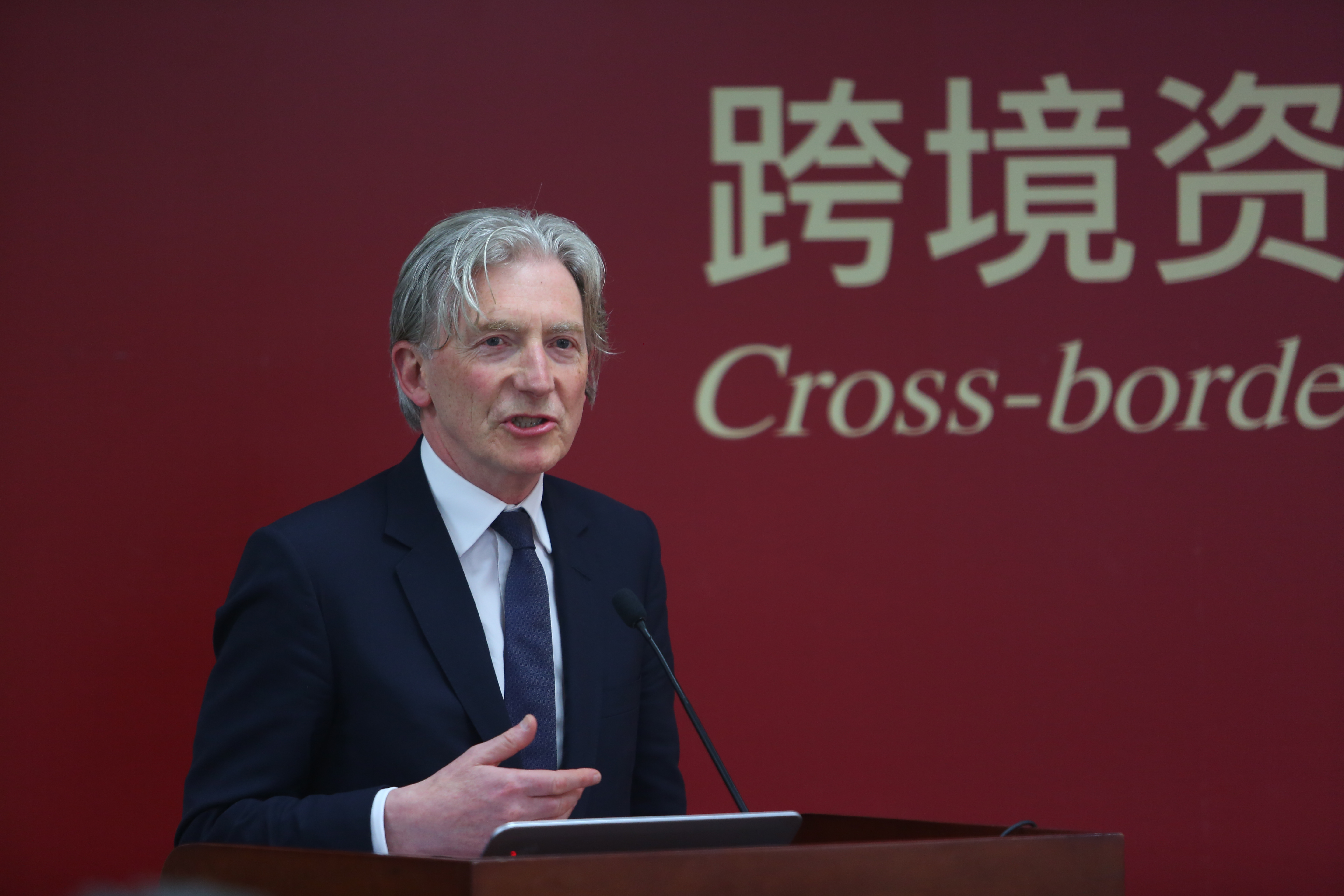 Lord Neil Davidson indicated that China’s economy is gradually developing, China is transforming its international status, and in the future, China will continue to open its capital account and trade market. As China improves its economic status, the western capital market will be more and more willing to participate in the Chinese market. In the future, the RMB will definitely become a key currency used by multinational enterprises not only for trades and the development of the Belt and Road Initiative, but also in the global economy. In the future, the RMB will definitely become a global currency and a normal international currency.
Lord Neil Davidson indicated that China’s economy is gradually developing, China is transforming its international status, and in the future, China will continue to open its capital account and trade market. As China improves its economic status, the western capital market will be more and more willing to participate in the Chinese market. In the future, the RMB will definitely become a key currency used by multinational enterprises not only for trades and the development of the Belt and Road Initiative, but also in the global economy. In the future, the RMB will definitely become a global currency and a normal international currency.
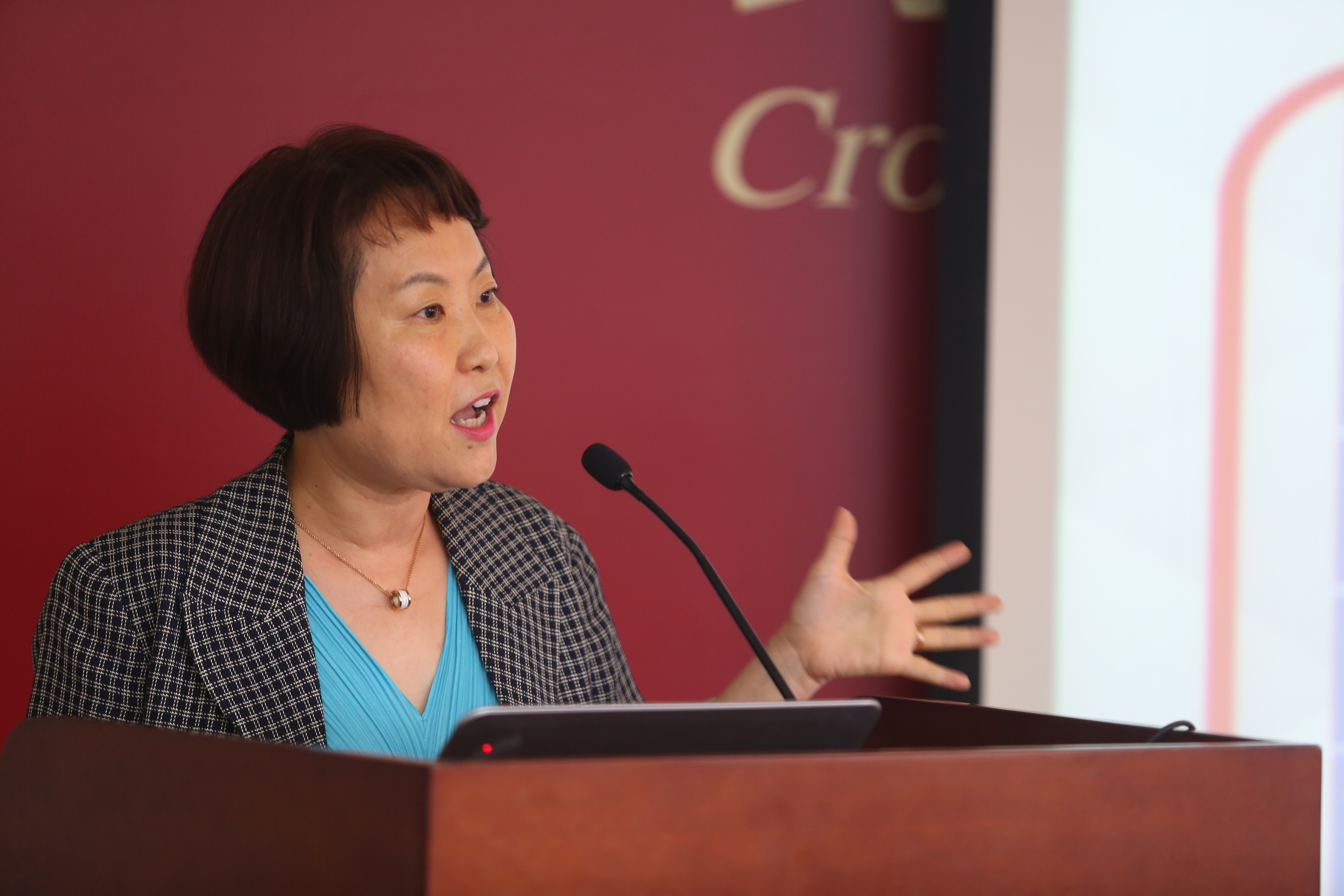 E Zhihuan thought that in recent years, the RMB internationalization has changed in the following three aspects: first, in terms of foreign currency reserves, all central banks have become more willing to hold the RMB as their foreign currencies; second, during the whole process of the RMB internationalization, the driving force has changed from trade and investment to security investment and reserve asset; and third, the domestic financial market continues to open up wider and the capital account liberalization also speeds up. However, international investors still have some doubts about the Chinese market, for example, doubts about the differences between the market management, the market liquidity, the credit rating, and the international standards. In the future, the RMB internationalization needs to reach three balances: the balances between enhancing the RMB’s use frequency in the financial trade and stabilizing the exchange rate, between the external capital inflow and the domestic capital outflow, and between further developing the onshore market and the offshore market.
E Zhihuan thought that in recent years, the RMB internationalization has changed in the following three aspects: first, in terms of foreign currency reserves, all central banks have become more willing to hold the RMB as their foreign currencies; second, during the whole process of the RMB internationalization, the driving force has changed from trade and investment to security investment and reserve asset; and third, the domestic financial market continues to open up wider and the capital account liberalization also speeds up. However, international investors still have some doubts about the Chinese market, for example, doubts about the differences between the market management, the market liquidity, the credit rating, and the international standards. In the future, the RMB internationalization needs to reach three balances: the balances between enhancing the RMB’s use frequency in the financial trade and stabilizing the exchange rate, between the external capital inflow and the domestic capital outflow, and between further developing the onshore market and the offshore market.
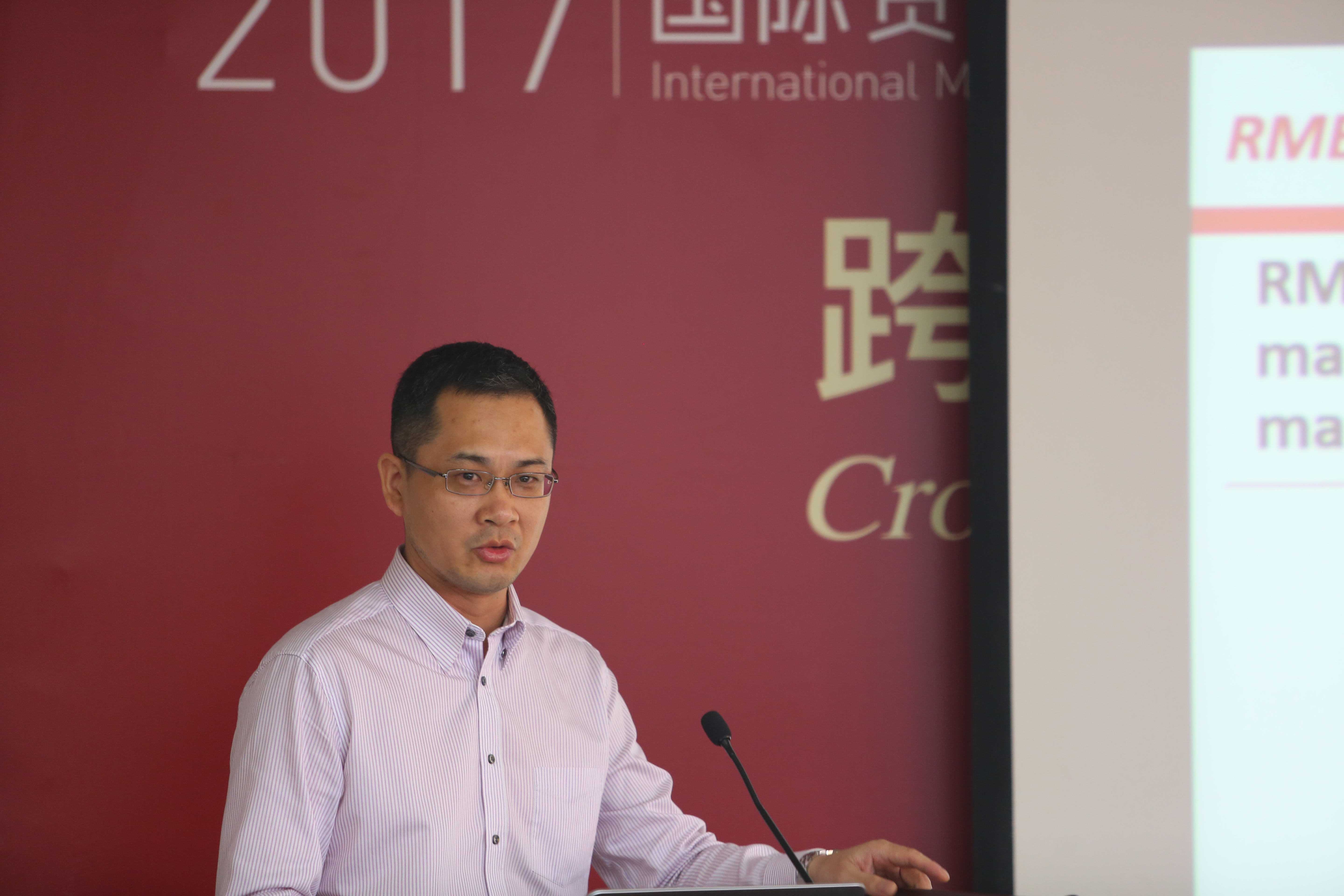 Li Wenlong mentioned in his speech that from the perspectives of the Chinese economy’s share in the world and the RMB as the international reserve currency, although the RMB internationalization makes a little progress, it keeps developing. In terms of markets, in the future, the RMB internationalization needs to integrate or collect data of the offshore and onshore market exchange rates and borrowing and lending interest rates and to enhance the RMB’s pricing power of the commodities market; in terms of institutionalization, China needs to enhance its arrangement of inflation targets and boost the capital market’s confidence in the RMB through the introduction of inflation targets; and in terms of laws, China needs to modify the restrictions on the RMB payment flows provided in the Law of the People’s Bank of China.
Li Wenlong mentioned in his speech that from the perspectives of the Chinese economy’s share in the world and the RMB as the international reserve currency, although the RMB internationalization makes a little progress, it keeps developing. In terms of markets, in the future, the RMB internationalization needs to integrate or collect data of the offshore and onshore market exchange rates and borrowing and lending interest rates and to enhance the RMB’s pricing power of the commodities market; in terms of institutionalization, China needs to enhance its arrangement of inflation targets and boost the capital market’s confidence in the RMB through the introduction of inflation targets; and in terms of laws, China needs to modify the restrictions on the RMB payment flows provided in the Law of the People’s Bank of China.
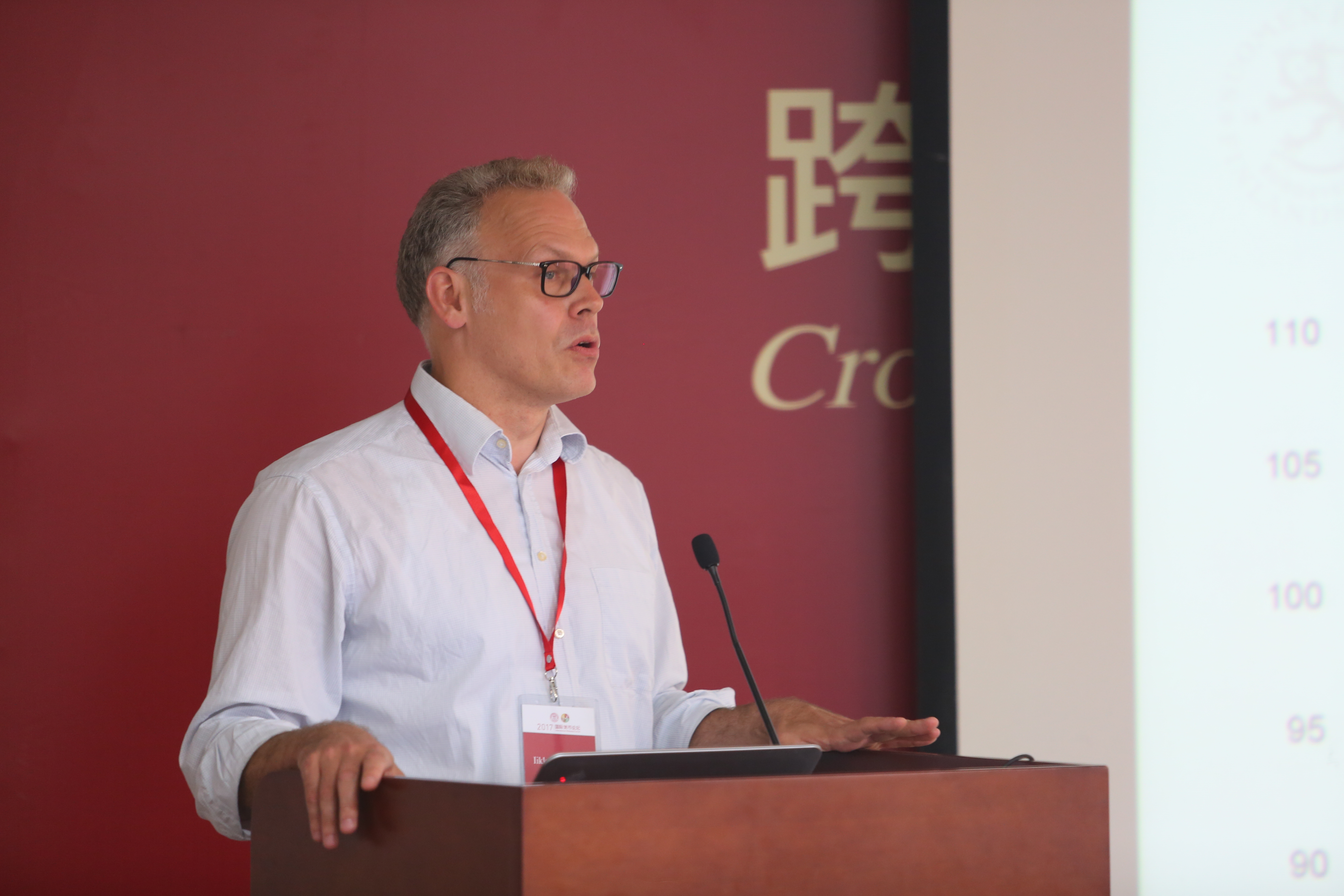 Iikka Korhonen thought that in the future, China will make further progress in its RMB internationalization. In the previous years, the RMB internationalization went through the temporary stagnation, but in the future, it will enjoy further growth. If China wants to truly internationalize its RMB, the capital must freely flow and we also need a transparent, well-regulated capital market to support cross-border trades. Only in this way can China promote the RMB internationalization.
Iikka Korhonen thought that in the future, China will make further progress in its RMB internationalization. In the previous years, the RMB internationalization went through the temporary stagnation, but in the future, it will enjoy further growth. If China wants to truly internationalize its RMB, the capital must freely flow and we also need a transparent, well-regulated capital market to support cross-border trades. Only in this way can China promote the RMB internationalization.
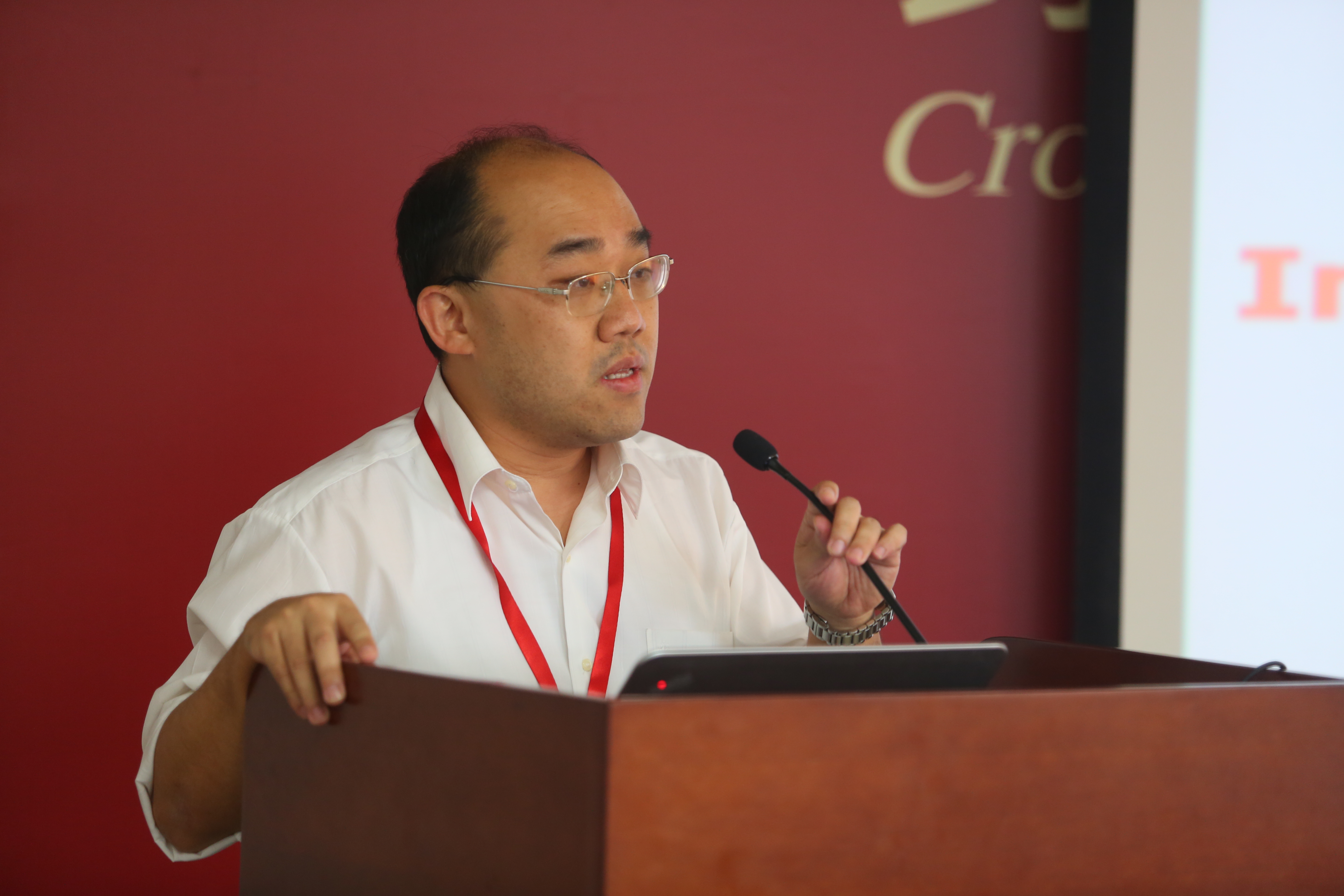 Zhou Yinggang indicated that in recent years, as the RMB internationalization speeds up, the changing trends and influences of the RMB exchange rate attract great attention at home and abroad. He used a series of data to demonstrate that the RMB internationalization is speeding up and the RMB is becoming more and more important. During the RMB internationalization, the elasticity of the volatile exchange rate is increasing. Although the RMB enters into the channel of depreciation, the RMB’s spillover effect is enhanced. The RMB’s market-based reform can also explain why the RMB’s influence increases.
Zhou Yinggang indicated that in recent years, as the RMB internationalization speeds up, the changing trends and influences of the RMB exchange rate attract great attention at home and abroad. He used a series of data to demonstrate that the RMB internationalization is speeding up and the RMB is becoming more and more important. During the RMB internationalization, the elasticity of the volatile exchange rate is increasing. Although the RMB enters into the channel of depreciation, the RMB’s spillover effect is enhanced. The RMB’s market-based reform can also explain why the RMB’s influence increases.
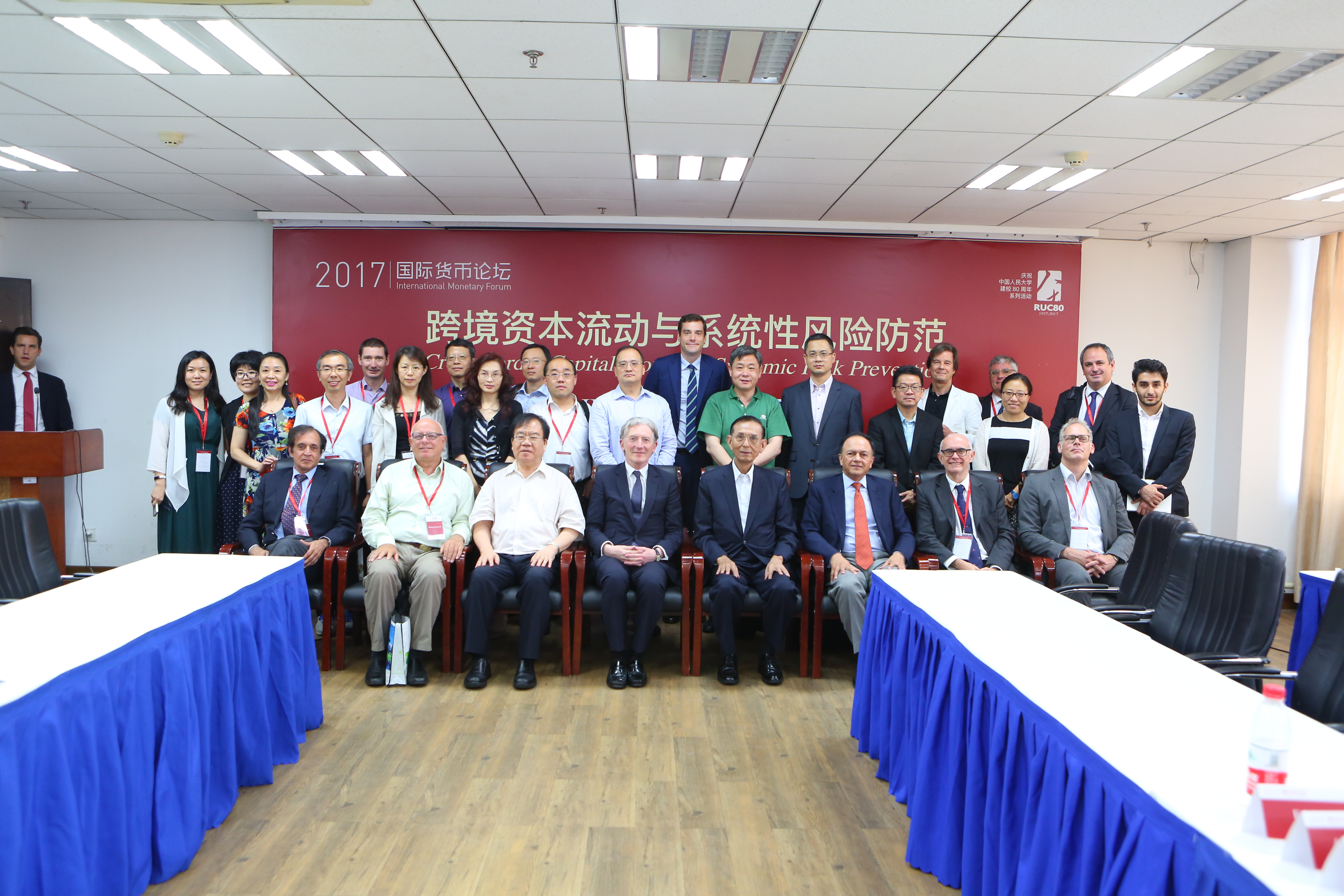 The following guests also joined the discussion on this theme: Zhong Hong, Senior Research Fellow of International Finance Institute of Bank of China and Executive Associate Editor of Studies of International Finance; Wei Benhua, Former Deputy Administrator-in-Bureau of SAFE and Former Executive Director for China in IMF; and Yaseen Anwar, Former Governor of the Central Bank of Pakistan.
The following guests also joined the discussion on this theme: Zhong Hong, Senior Research Fellow of International Finance Institute of Bank of China and Executive Associate Editor of Studies of International Finance; Wei Benhua, Former Deputy Administrator-in-Bureau of SAFE and Former Executive Director for China in IMF; and Yaseen Anwar, Former Governor of the Central Bank of Pakistan.

